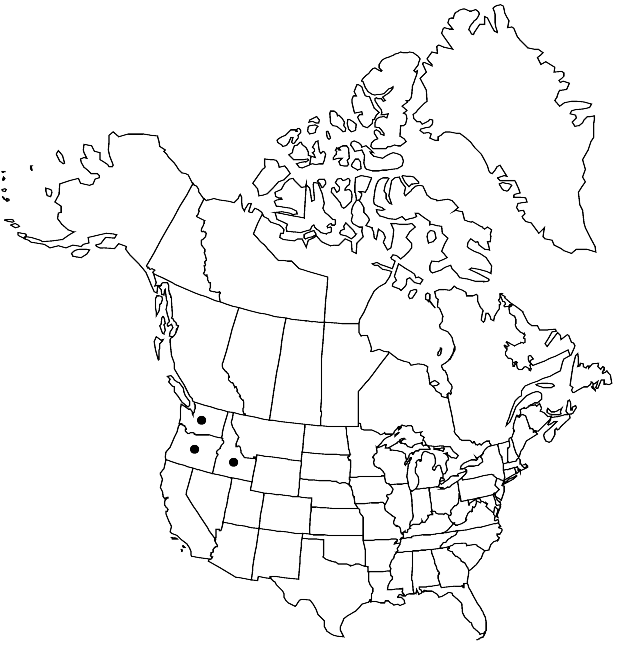Salix monochroma
Bot. Gaz. 71: 431, fig. 1. 1921.
Shrubs, 2–4 m. Stems: branches yellow-brown, gray-brown, or red-brown, not glaucous, glabrous; branchlets yellow-brown or red-brown, (sometimes weakly glaucous, with sparkling wax crystals), glabrous or puberulent. Leaves: stipules foliaceous, (prominent), apex rounded or acute; petiole convex to flat, or shallowly grooved adaxially, 6–16 mm, velvety or pilose adaxially; largest medial blade narrowly oblong, elliptic, or broadly elliptic, 54–100 × 18–35 mm, 1.8–3.6 times as long as wide, base convex, rounded, subcordate, or cordate, margins flat, serrate or serrulate (teeth sometimes elongate), apex acuminate to acute, abaxial surface not glaucous, glabrous, adaxial dull, glabrous or pilose, midrib hairy; proximal blade margins entire or serrulate; juvenile blade reddish or yellowish green, glabrous or sparsely short- or long-silky abaxially, hairs white. Catkins flowering as or just before leaves emerge; staminate stout or slender, 24–43(–52 in fruit) × 6–11 mm, flowering branchlet 1–4 mm; pistillate moderately densely to loosely flowered, stout, 33–73 × 8–16 mm, flowering branchlet 2–12 mm; floral bract brown, 0.7–1.6 mm, apex rounded, convex, or acute, abaxially hairy throughout or proximally, hairs wavy or curly. Staminate flowers: adaxial nectary narrowly oblong, 0.6–1.1 mm; filaments distinct or slightly connate, glabrous; anthers purple turning yellow, (ellipsoid or shortly cylindrical), 0.5–0.7 mm. Pistillate flowers: adaxial nectary narrowly oblong, oblong, or flask-shaped, 0.3–1.1 mm, shorter than stipe; stipe 1.4–3.6 mm; ovary pyriform, glabrous, beak sometimes slightly bulged below styles; ovules 18–22 per ovary; styles 0.2–0.5 mm; stigmas flat, abaxially non-papillate with rounded tip, or broadly cylindrical, 0.2–0.23–0.26 mm. Capsules 3.6–5.2 mm.
Phenology: Flowering early-mid May.
Habitat: Silty or stony stream margins
Elevation: 150-2200 m
Distribution

Idaho, Oreg., Wash.
Discussion
Selected References
None.